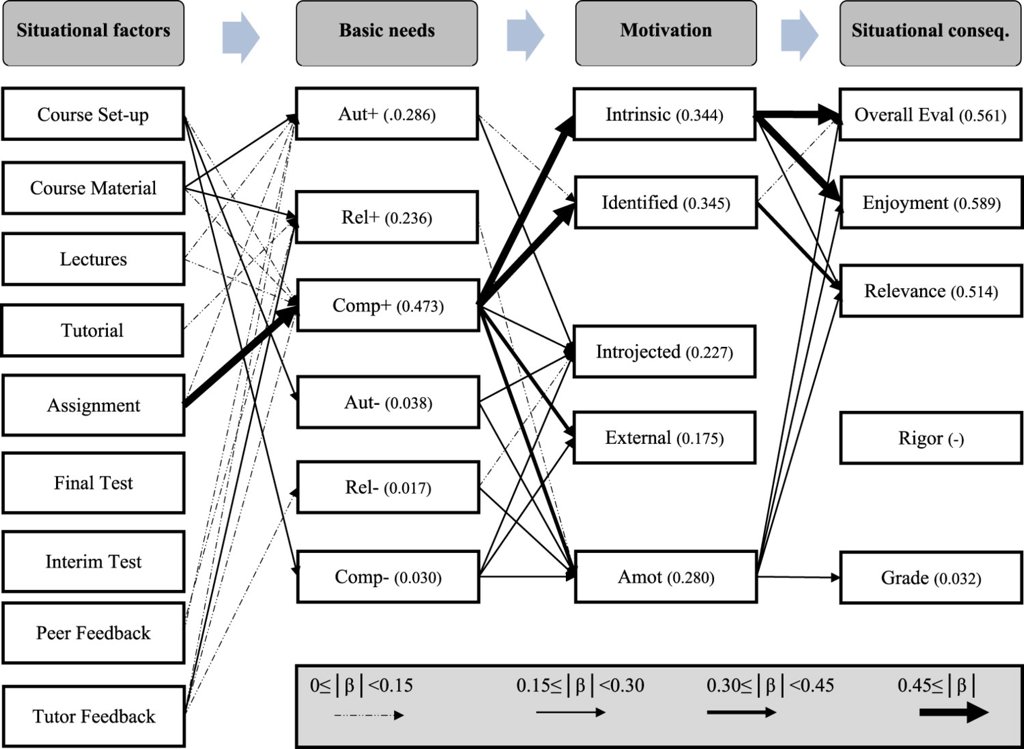Project introduction and background information
In this project we published an article on the use of basic needs and motivation with self-determination theory to redesign a course.
A course on ethics and history of technology, taught to 1886 first-year engineering students of 14 engineering departments was redesigned using Self-Determination Theory (SDT) by adapting many course elements at the same time. We applied the situational level of Vallerand’s hierarchical model, analysing how the elements of this ethics and history course influenced basic needs and motivation in a mediating role, which influenced in turn course outcomes. Regression analysis demonstrated the central role of competence in the assignment for intrinsic motivation. A complementary qualitative analysis showed strong polarisation between different types of students and indicated many remaining challenges. We conclude that the Vallerand model was a useful tool for prioritising redesign in this course. We suggest further research in the use of this model, on the role and meaning of competence and on the role of frustration, in ethics and history courses in particular and engineering courses in general.
Objective and expected outcomes
Motivation is low, but it was unclear in this complex course what the issue was. We tried for several years to intuitively change things. We wanted to tackle the problem in an evidence-informed way.
Results and learnings
We could very clearly indicate the important role of "assignment" for the basic need "competence" (autonomy stressed often in literature was less important, relatedness was not important at all). "Competence" correlated strongly with "intrinsic motivation" that in turn correlated strongly with overall evaluation.

Recommendations
As teachers and course-redesigners, we appreciated this method a lot and can recommend it to others.




